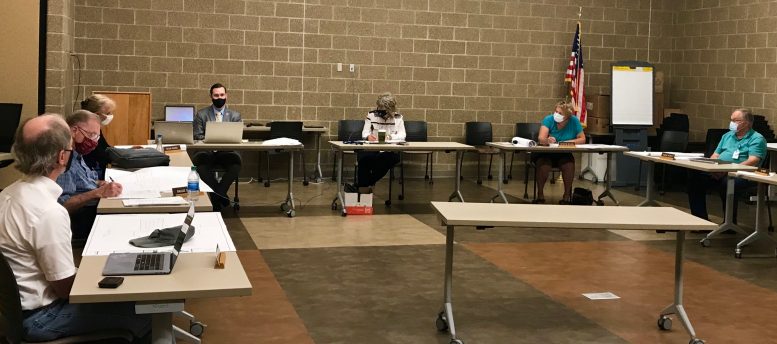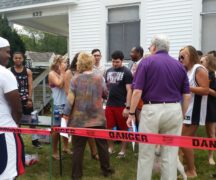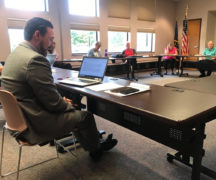By DAVID DUPONT
BG Independent News
Senate Bill 22 was pushed as a way for the state legislature to control the issuing of health orders by the executive branch.
Gov. Mike DeWine vetoed it, but the Republican controlled legislature overrode that veto. (State Sen. Theresa Gavarone and State Rep. Haraz Ghanbari both supported the legislation.)
SB 22 also has an impact on local health departments and could tie their hands when dealing with some pandemics.
Assistant County Prosecutor Linda Holmes spoke to the county Health Board at its June meeting about the implications of the bill.
Changes made to the bill late in the process changed language so that health departments can only order individuals who have been diagnosed with a disease into isolation or quarantine, not those exposed.
“Under new statute you can only do that for person who has been medically diagnosed with disease or come in direct contact with someone medically diagnosed or case of a documented instance in the building,” Holmes said. Any order applying to a broader group of people, she said, would be invalid. “The focus is you have to have a medical diagnosis and it only applies with someone who is medically diagnosed or come in contact with someone who is.”
Both Health Commissioner Ben Robison and Holmes used Ebola as an example of how this could be a problem.
In the case of Ebola, it can take 32 hours to determine whether someone has the disease, Robison said
“That person might be contagious and in contact with a lot of people,” Holmes said.
She said has been fortunate in not having a not having a lot of instances of these severe communicable diseases. She did recall a hitchhiker who was determined to have tuberculosis. The department was able to house that person and get him treatment.
The bill also spells out the department’s responsibility for disinfecting schools in the case of a documented case of “a dangerous communicable disease” being detected. “The board can close that specific building for such time as to disinfect a building or otherwise bring that school building into sanitary condition,” Holmes said.
She said given the number of school districts that have consolidated their schools with all grades in a single structure, the language is vague. Those schools are sectioned off, with different grade levels in different parts of the building, but there is interaction between people in different sections.
Holmes said the bill was vague as to whether the entire building, or just a section could be closed for disinfecting.
State organizations, she said, may be able to provide guidance.





